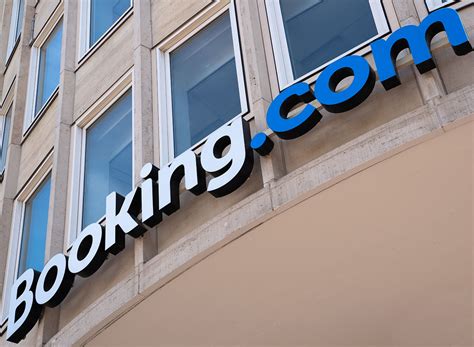
A first-time cruiser’s dream vacation aboard one of the world’s largest cruise ships quickly turned into a logistical nightmare after a booking error left her without a confirmed cabin for the first night of her voyage. The unexpected predicament highlights the potential pitfalls of cruise travel and the importance of verifying booking details.
A woman, identified only as Amy, recounted her experience on the world’s third-largest cruise ship, detailing how she discovered her room booking was only partially confirmed for the second night onwards, leaving her scrambling for accommodation upon arrival. “When I got to the cruise, they were like, ‘Oh, your room actually doesn’t start until tomorrow night,” Amy said. This situation forced her to spend the first night in the ship’s conference room, a far cry from the relaxing start she had envisioned.
Amy booked her trip with a popular online travel agency and believed all arrangements were finalized, however, a glitch or oversight in the booking process resulted in only a partial reservation being processed. Upon boarding, Amy was informed by cruise staff that her cabin was unavailable for the first night, and it was not until she escalated the issue that a temporary solution was found. After hours of waiting, Amy was offered a makeshift bed in the ship’s conference room, an experience she described as less than ideal. “I just sat there for hours,” she explained.
The incident underscores the potential for booking errors, even when using reputable travel platforms. While the cruise line eventually resolved the issue by providing Amy with her booked cabin for the remainder of the voyage and offering compensation, the initial stress and inconvenience marred her first cruise experience. Amy’s case serves as a cautionary tale for travelers to double-check all booking confirmations and communicate directly with the cruise line to verify reservations.
Amy’s ordeal began with excitement. She chose the massive cruise ship, eager to experience all the amenities and destinations it offered. The ship boasts multiple restaurants, entertainment venues, and recreational activities designed to cater to thousands of passengers. Amy had meticulously planned her itinerary, anticipating a seamless vacation experience. However, the booking error quickly disrupted her plans, transforming anticipation into frustration.
The initial shock of discovering the booking discrepancy was compounded by the uncertainty of where she would spend the first night. Amy spent several hours at the guest services desk, attempting to resolve the issue. The staff acknowledged the error and worked to find a solution, but the ship was fully booked, leaving limited options. The conference room, typically used for meetings and events, was converted into a temporary accommodation space. Amy described the setting as impersonal and uncomfortable, lacking the amenities and privacy of a standard cabin.
Despite the initial setback, Amy decided to make the most of her cruise once the accommodation issue was resolved. She explored the ship, participated in onboard activities, and enjoyed the scheduled port visits. The cruise line offered her a partial refund and onboard credit as compensation for the inconvenience. While the compensation helped offset the negative experience, Amy admitted that the booking error cast a shadow over her entire trip.
The incident has prompted Amy to share her story as a warning to other travelers. She emphasizes the importance of verifying booking details directly with the cruise line, even after receiving confirmation from a travel agency. Amy also advises travelers to purchase travel insurance that covers potential booking errors and unexpected accommodation issues. Her experience highlights the need for vigilance and proactive communication when planning a cruise vacation.
Amy’s experience also raises questions about the responsibility of online travel agencies and cruise lines in ensuring accurate bookings. While travel agencies act as intermediaries between customers and service providers, they have a duty to ensure that booking requests are processed correctly. Cruise lines, on the other hand, are responsible for managing their inventory and accommodating passengers according to their confirmed reservations. In Amy’s case, the breakdown in communication or system error led to a significant disruption in her travel plans.
The cruise industry is a complex ecosystem involving multiple stakeholders, including travel agencies, cruise lines, and third-party vendors. Booking errors can occur at any point in the process, from initial reservation to final confirmation. While cruise lines typically have procedures in place to address booking discrepancies, these procedures may not always be effective in resolving issues quickly and efficiently, especially when a ship is fully booked.
Amy’s story is a reminder that even the most meticulously planned vacations can be subject to unforeseen problems. While travel agencies and cruise lines strive to provide seamless booking experiences, errors can and do occur. Travelers can mitigate the risk of booking errors by taking proactive steps to verify their reservations and understand their rights and responsibilities. Travel insurance can provide additional protection against unexpected disruptions and financial losses.
Furthermore, Amy’s experience shines a light on customer service in the travel industry. While the cruise staff attempted to rectify the situation, the initial hours of uncertainty and the unsatisfactory temporary accommodation left Amy feeling neglected and undervalued. Exceptional customer service requires not only resolving problems but also providing empathy, clear communication, and proactive solutions to minimize inconvenience and stress.
The incident also highlights the operational challenges faced by large cruise ships. Managing thousands of passengers and coordinating complex logistics require efficient systems and well-trained staff. Booking errors can create ripple effects, impacting not only the affected passengers but also the crew responsible for managing accommodations and addressing customer complaints. Cruise lines must continuously improve their booking processes and customer service protocols to minimize the risk of errors and ensure a positive experience for all passengers.
Amy’s experience underscores the importance of travel planning and preparation. While spontaneity can be appealing, thorough research and verification are essential for ensuring a smooth and enjoyable vacation. Travelers should carefully review all booking confirmations, understand the terms and conditions of their reservations, and be prepared to address any issues that may arise.
The cruise industry is a significant contributor to the global economy, attracting millions of passengers each year. Cruise vacations offer a unique blend of relaxation, adventure, and cultural experiences. However, the industry also faces challenges related to sustainability, environmental impact, and customer satisfaction. Addressing these challenges requires collaboration among cruise lines, travel agencies, governments, and passengers.
In the wake of Amy’s experience, there has been increased discussion about consumer protection in the cruise industry. Advocates are calling for greater transparency in booking processes, stronger accountability for travel agencies and cruise lines, and improved mechanisms for resolving disputes. Travelers should be aware of their rights and be prepared to advocate for themselves if they encounter booking errors or other issues.
Amy’s story serves as a valuable lesson for both travelers and the cruise industry. By learning from her experience, individuals can take steps to mitigate the risk of booking errors and ensure a smoother vacation experience. The industry can use this as an opportunity to improve booking processes, enhance customer service, and strengthen consumer protection. Ultimately, the goal is to create a more transparent, reliable, and enjoyable cruise experience for all.
While Amy’s unfortunate experience may deter some first-time cruisers, it’s important to remember that booking errors are relatively rare. Millions of passengers embark on cruises each year without incident. However, Amy’s story highlights the importance of being prepared and proactive. By verifying booking details, purchasing travel insurance, and understanding their rights, travelers can minimize the risk of encountering similar problems.
The cruise industry is constantly evolving, with new ships, itineraries, and technologies emerging each year. As the industry grows, it is essential to prioritize customer satisfaction and ensure that all passengers have a positive and memorable experience. This requires a commitment to excellence from all stakeholders, from travel agencies to cruise lines to individual crew members.
Amy’s experience serves as a reminder that even the most well-planned vacations can be subject to unexpected challenges. However, by being prepared, proactive, and informed, travelers can mitigate the risk of problems and ensure a smoother and more enjoyable cruise experience. Her story is a valuable lesson for both travelers and the cruise industry, highlighting the importance of vigilance, communication, and customer service.
Amy’s story is particularly relevant in the context of the increasing popularity of online travel agencies. While these platforms offer convenience and competitive prices, they also present potential risks related to booking errors and lack of direct communication with service providers. Travelers should exercise caution when using online travel agencies and take steps to verify all booking details directly with the cruise line or hotel.
The cruise industry is a complex and dynamic sector of the global tourism industry. It offers a wide range of vacation options, from short weekend getaways to multi-week voyages around the world. However, it is also subject to various challenges, including economic fluctuations, environmental concerns, and customer service issues. By addressing these challenges proactively, the industry can ensure its long-term sustainability and continue to provide memorable experiences for millions of passengers.
The aftermath of Amy’s ordeal is a testament to the power of sharing personal experiences. By speaking out about her booking error, Amy has raised awareness of potential pitfalls in the cruise booking process and empowered other travelers to take proactive steps to protect themselves. Her story serves as a reminder that even seemingly minor errors can have a significant impact on travel plans and that it is essential to be vigilant and informed when booking a vacation.
Amy’s experience has sparked a broader conversation about the need for greater transparency and accountability in the travel industry. Consumers are increasingly demanding clear and concise information about booking terms, cancellation policies, and dispute resolution mechanisms. Travel agencies and cruise lines must respond to these demands by providing greater transparency and ensuring that customers are fully informed about their rights and responsibilities.
The cruise industry plays a significant role in the economies of many countries and regions. Cruise ships visit ports around the world, generating revenue for local businesses and providing employment opportunities for residents. However, the industry also has a responsibility to minimize its environmental impact and contribute to the sustainable development of the destinations it visits.
Amy’s story underscores the importance of travel insurance. While travel insurance cannot prevent booking errors or other unforeseen problems, it can provide financial protection against losses resulting from these events. Travel insurance policies typically cover trip cancellations, medical expenses, lost luggage, and other unexpected costs. Travelers should carefully review the terms and conditions of their travel insurance policies to ensure that they are adequately protected.
The cruise industry is constantly innovating, introducing new technologies and amenities to enhance the passenger experience. From interactive entertainment systems to personalized dining options, cruise ships are becoming increasingly sophisticated and customized. However, it is essential to ensure that these innovations are accompanied by improvements in customer service and booking processes.
Amy’s experience highlights the importance of communication in the travel industry. Clear and timely communication between travel agencies, cruise lines, and passengers is essential for preventing booking errors and resolving any issues that may arise. Travel agencies and cruise lines should invest in training their staff to communicate effectively with customers and provide accurate and helpful information.
The cruise industry is a global industry, with cruise ships operating in all corners of the world. This global reach presents unique challenges related to cultural sensitivity, language barriers, and regulatory compliance. Cruise lines must be mindful of these challenges and take steps to ensure that they are operating in a responsible and ethical manner.
Amy’s story serves as a reminder that travel is not always seamless and predictable. Unexpected events can occur, and it is important to be prepared to adapt to changing circumstances. By being flexible, resourceful, and proactive, travelers can overcome challenges and still enjoy a memorable vacation.
The cruise industry is a dynamic and exciting sector of the global tourism industry. It offers a wide range of vacation options and provides opportunities for adventure, relaxation, and cultural exploration. However, it is also subject to various challenges and risks. By addressing these challenges proactively and embracing innovation, the industry can ensure its long-term success and continue to provide exceptional experiences for millions of passengers.
Amy’s experience emphasizes the need for ongoing training and education in the travel industry. Travel agents and cruise line staff should be well-versed in booking procedures, customer service protocols, and dispute resolution mechanisms. They should also be trained to handle challenging situations with empathy and professionalism.
The cruise industry is a competitive industry, with numerous cruise lines vying for passengers’ attention. To stand out from the competition, cruise lines must offer exceptional value, innovative amenities, and outstanding customer service. They must also be transparent and accountable in their booking processes and address any issues that may arise promptly and effectively.
Amy’s story highlights the importance of seeking assistance when problems arise during travel. Whether it’s contacting the travel agency, the cruise line, or a local tourism office, seeking help from knowledgeable professionals can often resolve issues more quickly and efficiently. Travelers should not hesitate to ask for assistance when they need it.
The cruise industry is a complex ecosystem involving numerous stakeholders, including passengers, crew members, travel agents, cruise lines, port authorities, and local businesses. Effective collaboration and communication among these stakeholders are essential for ensuring a positive and sustainable cruise experience.
Amy’s experience serves as a valuable case study for the travel industry, highlighting the importance of vigilance, communication, customer service, and consumer protection. By learning from her experience, the industry can take steps to prevent similar problems from occurring in the future and ensure that all passengers have a smooth and enjoyable cruise vacation.
The cruise industry offers a unique opportunity to explore the world and experience different cultures. From Alaska’s glaciers to the Mediterranean’s historic cities, cruise ships visit some of the most fascinating destinations on Earth. However, it is important to travel responsibly and respect the environment and the local communities that are visited.
Amy’s story underscores the importance of being a proactive and informed traveler. By researching destinations, understanding booking terms, and verifying reservations, travelers can minimize the risk of problems and ensure a more enjoyable vacation experience.
The cruise industry is a global industry with a significant economic and social impact. By promoting responsible tourism practices and supporting local communities, the industry can contribute to sustainable development and create positive outcomes for all stakeholders.
Amy’s experience serves as a reminder that travel is not just about the destination but also about the journey. Unexpected challenges can arise, but by being prepared, flexible, and proactive, travelers can overcome these challenges and create lasting memories.
FAQ:
-
What was the main issue Amy faced on her cruise? Amy’s room booking was not confirmed for the first night of her cruise, leaving her without a cabin upon arrival.
-
How did the cruise line initially accommodate Amy? The cruise line initially provided Amy with a temporary bed in the ship’s conference room for the first night.
-
What compensation did Amy receive for the booking error? The cruise line offered Amy a partial refund and onboard credit as compensation for the inconvenience.
-
What does Amy advise other travelers to do when booking a cruise? Amy advises travelers to double-check all booking details directly with the cruise line, even after receiving confirmation from a travel agency, and to purchase travel insurance.
-
What responsibility do online travel agencies have in ensuring accurate bookings? Online travel agencies have a duty to ensure that booking requests are processed correctly and to act as reliable intermediaries between customers and service providers.









